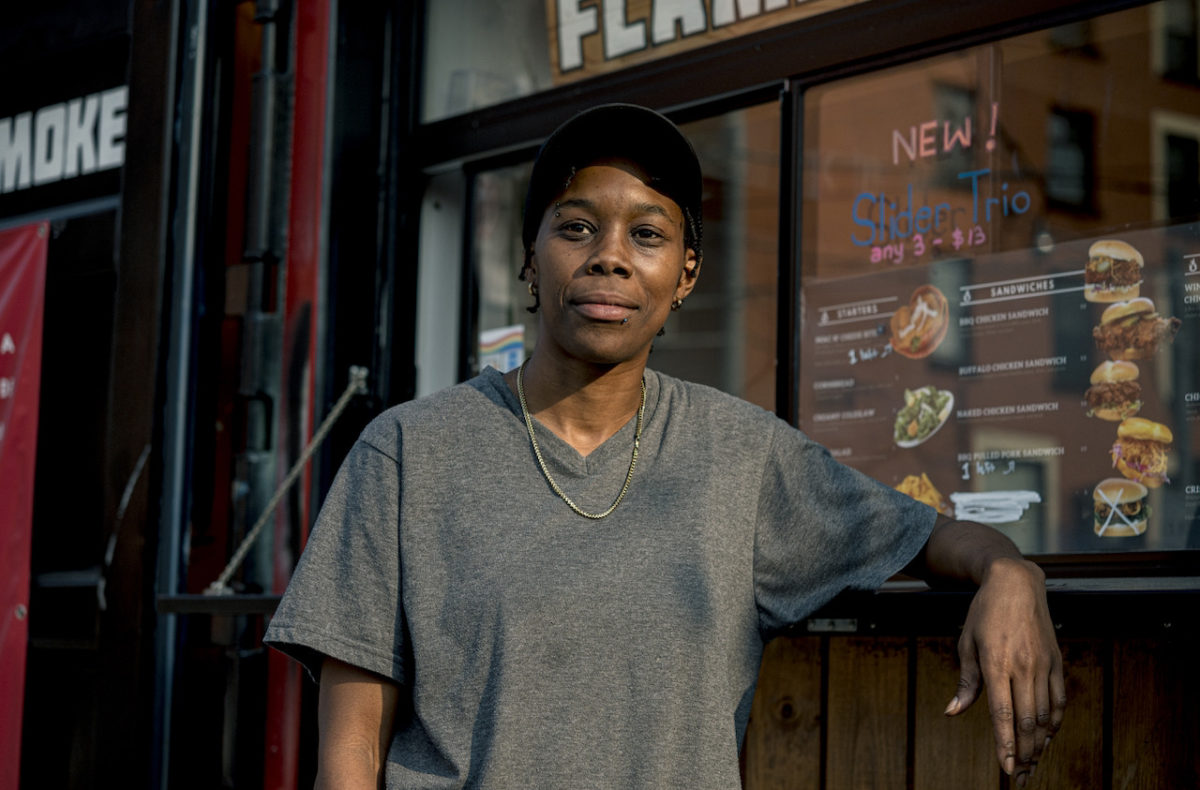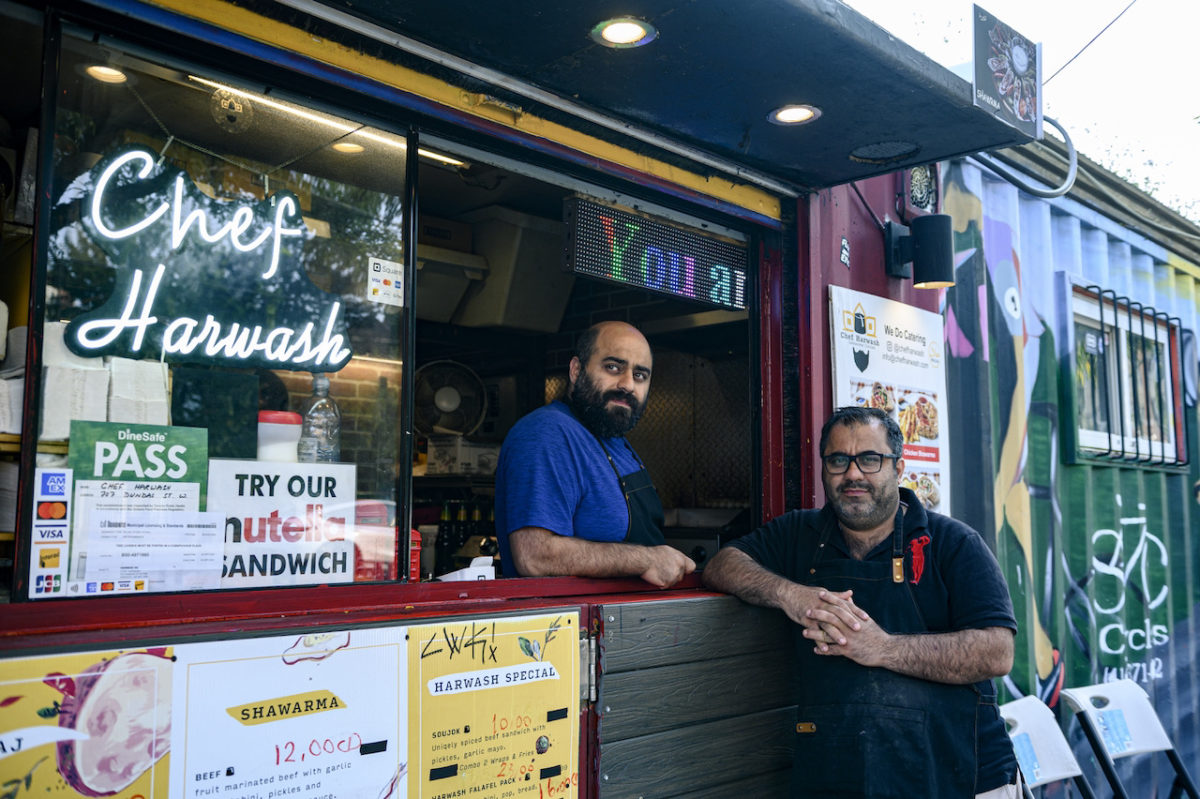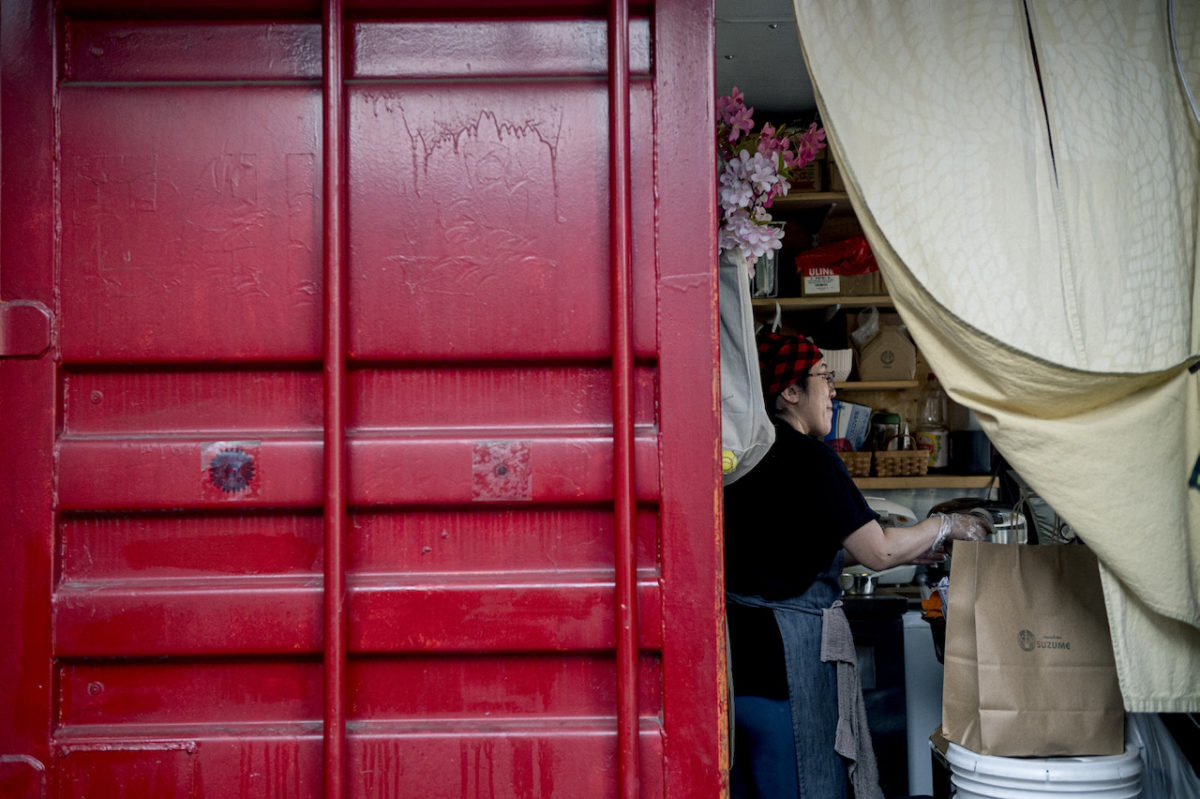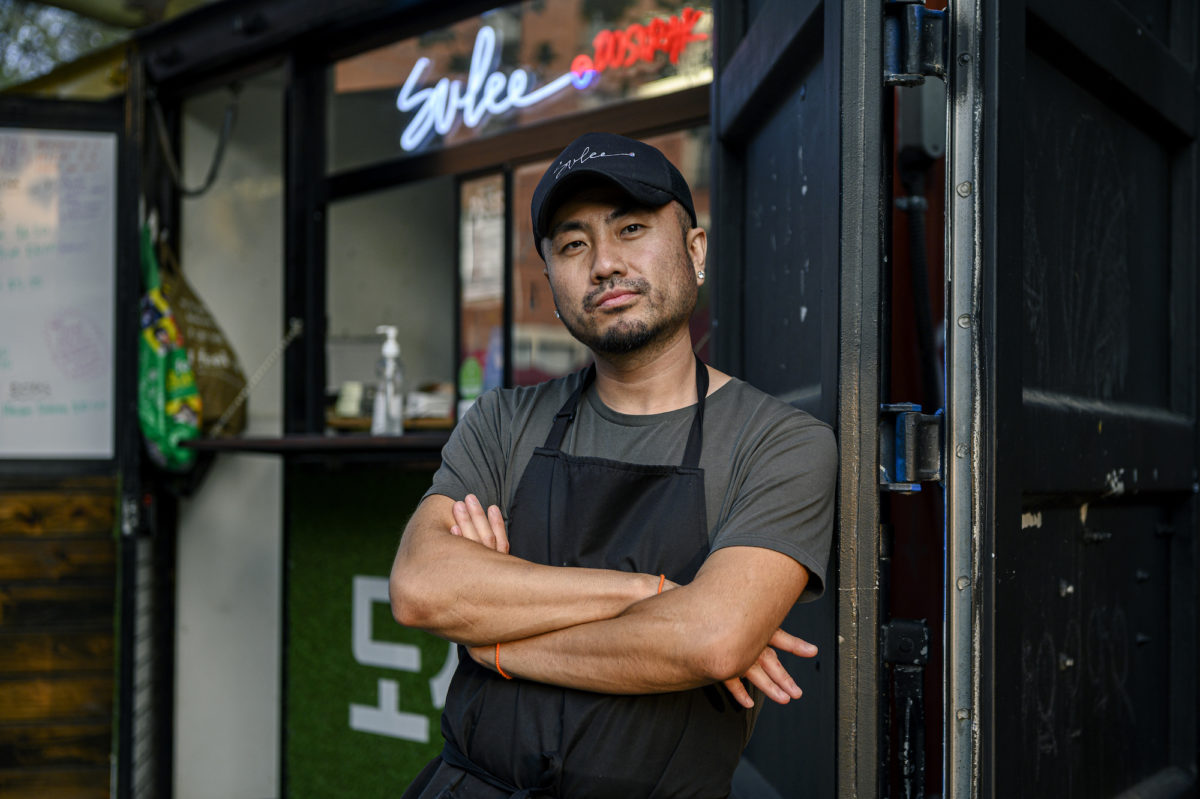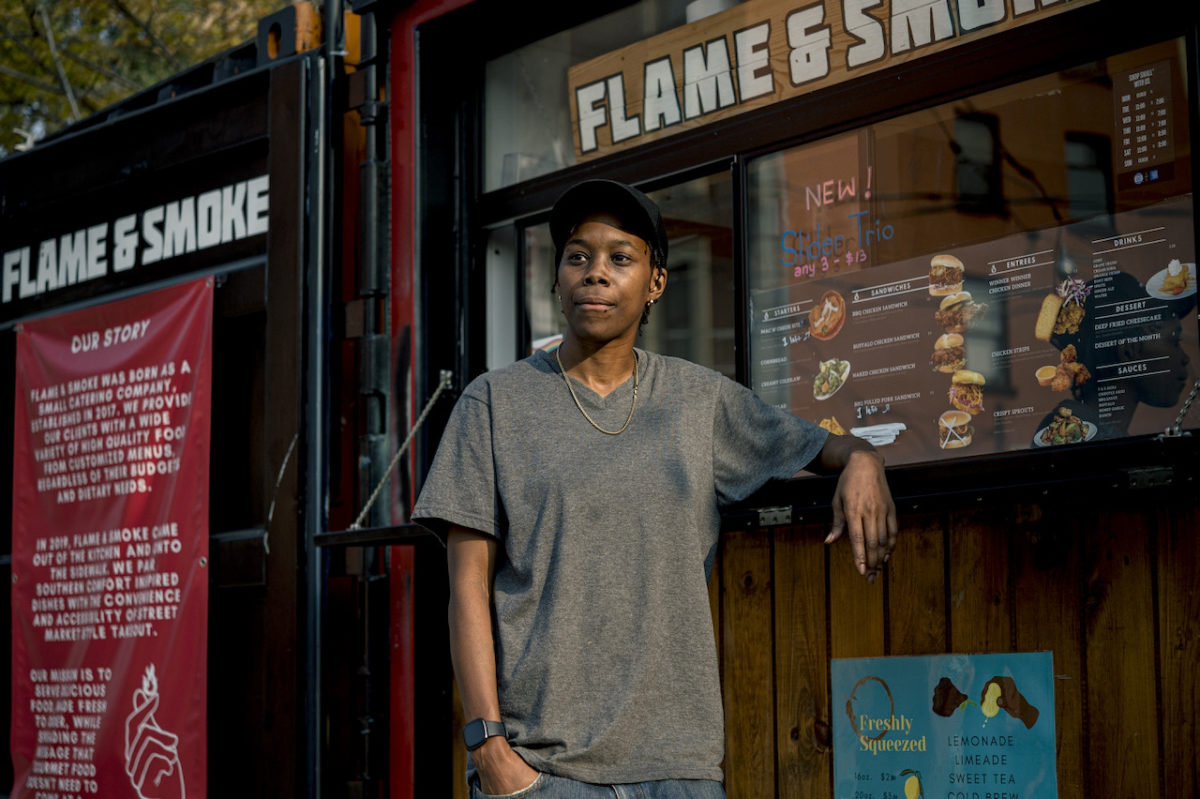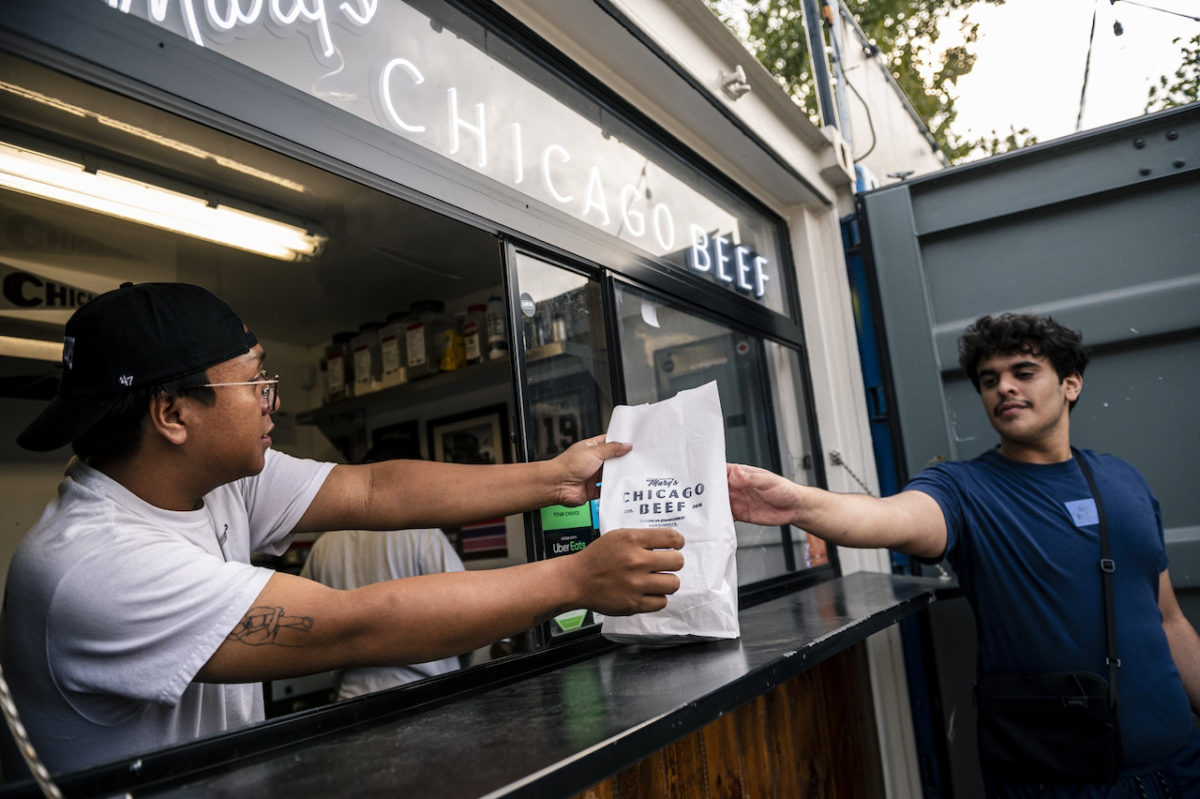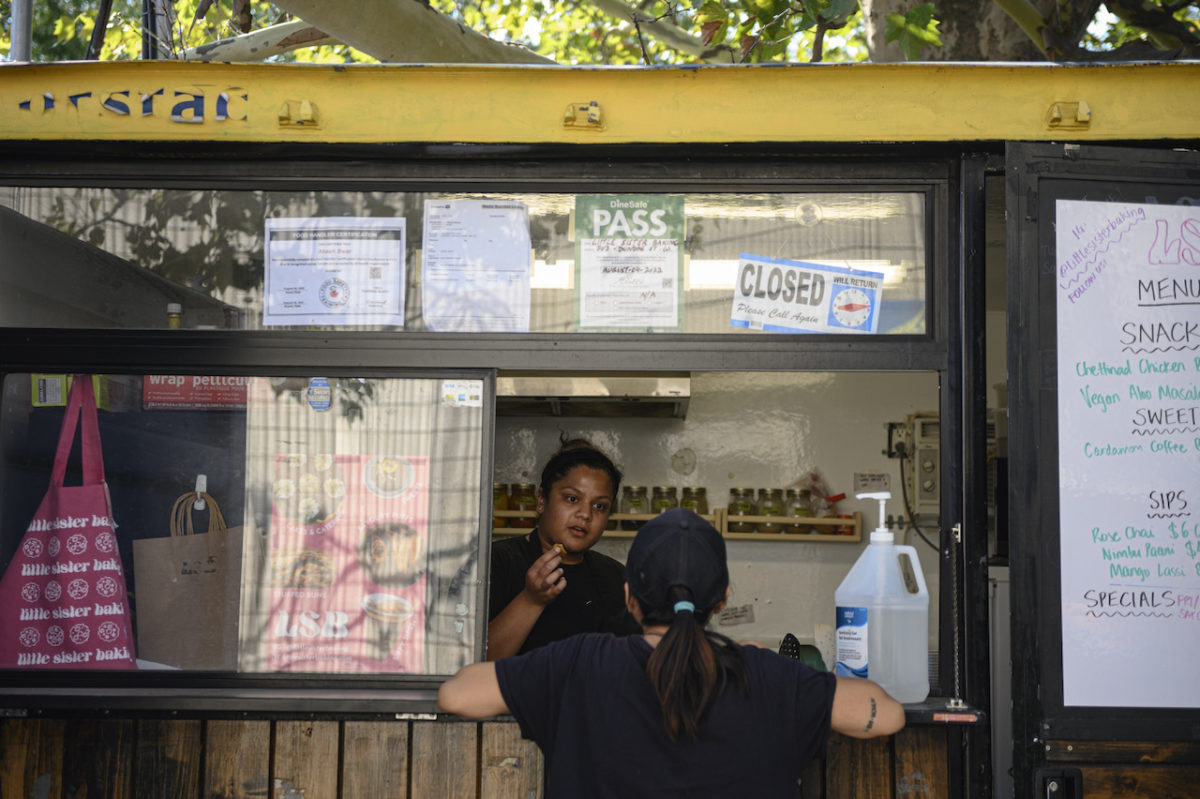Tucked into the busy intersection of Bathurst and Dundas, surrounded by a hospital, a community centre, and a library, Market 707 is a collection of more than 20 vendors housed in shipping containers, all serving up delicious and affordable food from around the world. Many of the containers are owned by people who have traditionally been locked out of business ownership — largely thanks to how expensive start-ups costs are, especially for restaurants looking to rent commercial space in Toronto.
Renting a unit at Market 707, which opened in 2011, costs an average of $600 a month, says Jake Rutland, the project coordinator-operations at Scadding Community Centre, where Market 707 is based. Comparatively, the typical cost of renting a commercial space in downtown Toronto clocks in at about $4,000 to $5,000 a month. Scadding Court provides Market 707 tenants with a three-season patio and upkeep, as well as daily waste, water and wastewater disposal. “We also work to provide our vendors with opportunities as they arise, whether through granting or training opportunities, or meaningful collaborations with local partners,” Rutland says. Due to high demand and low tenancy turnover, time on the market’s waitlist can stretch more than two years.
Tanvi Swar, the co-owner of Little Sister Baking, first discovered the market after using Scadding Court’s community kitchen. “We realized there was a whole vendor community and ended up finding a space,” she says. It has allowed Swar “to open a store, to be profitable, to pay ourselves, and to have a physical location while doing all those things. The subsidized rent is truly a blessing.”
We spoke to six vendors at Market 707 about their businesses, the uniqueness of running a restaurant at the market, and what sorts of eats they serve.


